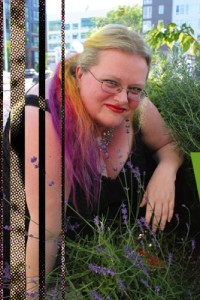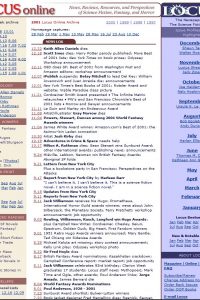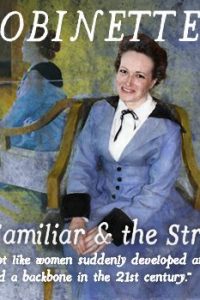Tochi Onyebuchi: Power Systems

Tochi Joshua Onyebuchi was born on October 4, 1987 in Northampton MA to Nigerian immigrant parents, and grew up in Newington and New Britain CT. He studied political science at Yale, earned a MFA in screenwriting from NYU’s Tisch School of the Arts, and a master’s degree in global economic law from the Instituts d’études politiques in France. He attended law school at Columbia, and after graduation worked in civil rights law for the New York State Attorney General’s Office and the Legal Aid Society.
Onyebuchi began publishing short fiction in 2011. Debut novel Beasts Made of Night, a YA fantasy, appeared in 2017, and was followed by sequel Crown of Thunder (2018). YA War Girls followed in 2019, and sequel Rebel Sisters is forthcoming. His latest book, and his first for adults, is novella Riot Baby (2020). First adult novel Goliath is forthcoming from Tor.com Publishing.
He lives in New Haven CT.
Excerpts from the interview:
“My mom didn’t really care what I was reading – I could have been reading erotic thrillers, and I don’t think she would have known. As a Nigerian immigrant, she wasn’t tapped into the genre specificities in American literature. She was happy to see me on the couch with my nose in a book – or rather, that was just expected.
“I was really big into David Eddings growing up, and from there, I transitioned into Robert Jordan, the Wheel of Time, and that sucked up a lot of my energies. Most of the inspiration – or at least the inspirational cues in my work at the moment – came from what I was watching on TV when I was young. It’s all imbibing storytelling to a certain degree, and from a very early age I treated watching Teknoman the same way I treated reading The Eye of the World. It was immersion in a world, but once I started writing and learning about writing, everything I watched or read became homework in a sense, not in terms of a duty I had to fulfill, but in terms of being material for me to study from.
“The Wheel of Time definitely had an impact on my writing in terms of scope. Before then, everything I read was either a single book or a trilogy, and everything I watched on TV was 30-minute or hour-long chunks. The Wheel of Time was my first encounter with scope and divergent plotlines that extended as far out as they did.
“I knew very early on that I wanted to be writer. I wanted to be published – I was writing to be read. There was a book I saw in a Borders or something, and the title was How to Write a Damn Good Novel. This was before I even knew about the racket that is instructional story telling. I had no idea how many snake oil salesmen there were. There is stuff in those books that can be helpful, but a lot of it you can learn for free. What was interesting about this book was that it used several different examples to illustrate the points in each chapter, and one of those examples was The Spy Who Came in from the Cold by John le Carré. I don’t remember any of what this book had to say about The Spy Who Came in from the Cold, but it prompted me to go to the library and get it. That book changed my life. Up until then, I’d been writing mostly fantasy and anime fan fiction. I read The Spy Who Came in from the Cold and I was like, ‘Wow, spy thrillers are the shit, this is amazing.’ My conception of spy thrillers was as a literary exploration of human personhood, personality, and the ethics of lying as a profession. It wasn’t like my introduction was through Brad Thor or Tom Clancy.
“My other two big influences are actually manga. The first is Blade of the Immortal by Hiraoki Samura, another story that impacted my idea of scope, because it went on for a very long time – only recently did they release the omnibus editions. It really delved into ethical concerns and populated what could have been a very simple revenge story with exploration of those concerns. It wasn’t just a hack-and-slash. Also, the artwork was just gorgeous. To this day it’s one of my favorite pieces of fiction ever. The last is Akira by Katsuhiro Otomo. There are fingerprints of that book in everything I’ve written – everything I’ve written. Before I read that book, I had no idea what it looked like for a city to fall out of the sky – and now because of that book, I do. It taught me you can imagine whatever you want and put it in a book. It was stuff I’d never seen in anything I’d read prior.
“I was reading situations in manga and experiencing storytelling that seemed a lot more sophisticated and ethically and emotionally daring than what I found in most western fantasy. In western fantasy it’s very clear who the hero is, what they need to do, and it’s all quest narrative – you quickly learn the beats. The Wheel of Time was cool because it got a little bit into the issue of madness, which I found compelling. But Blade of the Immortal and Akira really plumbed the depths of the human experience in a fantastical story that still had plenty of action and set pieces. I didn’t find that in a lot of the prose fiction I was reading, and I wouldn’t find it until I started branching out into literary fiction, and then winding my way back to SF/fantasy.
“Writing started as a task. I was going to be a comic book artist, and was reading a ton of comics and watching a ton of anime, and I loved to draw. Mom had this second job where she would take all us kids along, and we basically cleaned office buildings around Connecticut. In so many of those places, there were binders full of blank sheets of paper that people were getting ready to throw away, and so Mom would say, ‘Let me take these, my kid can draw on them and he’ll be happy and content for a few hours.’ These things would have like 500 sheets of paper, and I would fill them up with drawings in like a week and a half. One day Mom saw me and said, ‘You have all these characters – why don’t you write stories for them?’ I’m sure there was some academics-related justification for this, that it would improve my performance in school, even though I was already near the top of my class. I was like, ‘Mom, can I live? I literally just want to draw.’ I was so mad at her. ‘Why are you making me write? Ugh.’ I started just doing sulky, one-paragraph summaries of their adventures, and then one paragraph became two, became three, and then they started meeting each other, and I was like, ‘Oh, this is pretty interesting.’
“In seventh grade, I had my first creative writing class, and I discovered very early on that this was a class that could be relied upon to get me a very easy A. Writing was starting to be kind of fun, and I had the external validation of getting a good grade, so it became a positive feedback loop. Around that time, I joined the online writing workshop that used to be sponsored by Del Rey, and that was incredible. That was the first time that I met other writers, and it was so instructive. I got to see all these different visions of fantasy and SF. There was also a mandate that you read and review other people’s work, and those things – the reading and being read – worked together to make me better at what I was trying to do.
“Sometime in high school I was reading The Dragon Reborn, and when I finished and closed the book, I could still see the final scene in front of my eyes, an honest-to-God vision. I immediately realized there was somebody behind the curtain. A person had done this to me. Before then, I didn’t really think about people writing books – about the way there was a whole process that ended with a book in my hands. But in that moment, I thought, ‘Wait a second, I can do this to somebody else.’ From the beginning, there was this seed of altruism in there. I wanted to give that experience, that magic I had just gone through, to somebody else. The flipside of that is its power. What happened to me was such a powerful thing, and somebody manipulated whatever magic that they had in their hands to do that to me. I wanted to learn. It was like in anime when a young, impetuous hero sees their idol do some jutsu they’ve never seen before, and they’re like, ‘Oh, I want to be able to do that.’ That was the moment where I realized, ‘I want to do this as a profession.’ It was a very long time before I got to the place where I was cool with doing it as my only profession, or even conceptualizing it as my sole line of work. Growing up in a Nigerian household, you’re either a doctor, lawyer, engineer, or a disgrace to the family – those are your four options. I accorded my desires and my skills to what I thought would be the most appropriate venue, and wound my way to law school. I was always going to write, though. From the jump, I loved writing enough that no matter whether I ever got published, no matter whether anybody else read my work, I enjoyed writing too much not to do it. I knew I could do literally any other job and still write somehow. I would never have to stop writing. Writing was very flexible. I could make it work.
“My mom is the most important and influential person in my life. You could look at the way my life has gone and the role she has played in determining so much of the path and see an oppressive parent, but from my vantage, it looks like guidance and wisdom. I’m not in her head, so I don’t know what expectation she had, but I look back at my life and the miracles that have attended it, and so much of it is because of her. She influenced me in an academic and professional manner, but also emotionally and personally. Growing up, I helped clean office buildings with her, and I would take out trash while she cleaned toilets and vacuumed. That does something, because it’s one thing to be told by a mom to do something, and it’s another thing to watch your mom exemplify the thing that she’s telling you to do. A mom can say, ‘Work hard’ or whatever, but when you watch your mom working hard – particularly in this specific scenario, literally cleaning up after other people – that does something to you. The way in which she was able to make life work for her – I can’t imagine what it must have been like coming to this country and living her life and doing the things she did as a Black woman with an accent. There’s just so many people trying to take advantage of you, or ruin you, or to enact their prejudices against you, and she just thrived. Witnessing that is proof that it can work – you can make it work. I have this philosophy that grew out of people constantly asking me, ‘Tochi, you’re going to law school – how are you going to be a lawyer and a writer?’ I said, ‘Why choose? Why can’t I do all of the things?’ A lot of that grew out of seeing my mom live the way that she lived – but also from her encouraging me to do all of the things. I went to a boarding school in high school that had a ton of opportunities for me: previously unimaginable situations to jump into, like studying abroad. Aside from a family trip to Nigeria, I’d never left the country. Mom was very encouraging – almost demanding I take advantage of every opportunity, not let things go to waste. I’ve tried to live my life as though I need to clean my plate.
“Study abroad was maybe the most life-changing experience I’ve ever had. I went to France. It was amazing, in part because there was an opportunity for complete reinvention. Whoever you were back in the States, nobody in this new country knew you, and you could be whoever you wanted. All of a sudden I was this dude with confidence, I could flirt with French girls – it was amazing. I was taking classes in French, going to Musée d’Orsay, the Louvre, and just hanging out. I would go there for classes, but I would also just go there on the weekends and journal and write, and it was magical. I was like, ‘I have to come back here.’ I did again on multiple occasions. I spent a semester in Paris in college, and then I worked a summer in France after graduation. I graduated college in 2009, and then summer of 2010 I was in France again. I spent my final year of law school in Paris. I love the place so much. In between all those voyages, I’d gotten the travel bug and had gone to other places. I had spent a summer in Morocco, lived in Palestine for ten weeks, did a six-week tour of the Balkans for research for my senior thesis, I’d been to Egypt – all that stuff was started by that first trip to France. And it wouldn’t have happened if Mom hadn’t said, ‘Take advantage of every opportunity.'”
Interview design by Francesca Myman. Photos by Jonathan Pitts-Wiley.
Read the full interview in the August 2020 issue of Locus.
 While you are here, please take a moment to support Locus with a one-time or recurring donation. We rely on reader donations to keep the magazine and site going, and would like to keep the site paywall free, but WE NEED YOUR FINANCIAL SUPPORT to continue quality coverage of the science fiction and fantasy field.
While you are here, please take a moment to support Locus with a one-time or recurring donation. We rely on reader donations to keep the magazine and site going, and would like to keep the site paywall free, but WE NEED YOUR FINANCIAL SUPPORT to continue quality coverage of the science fiction and fantasy field.







